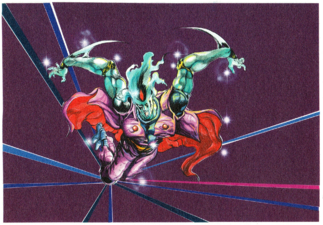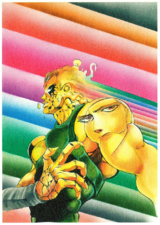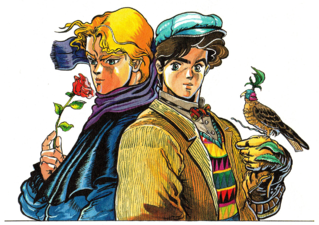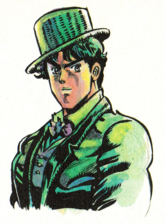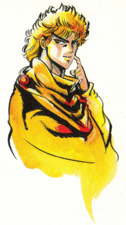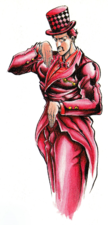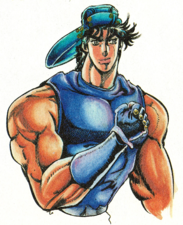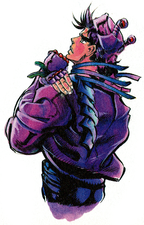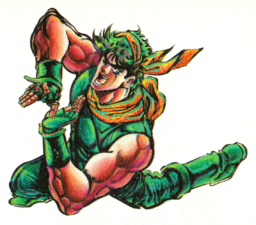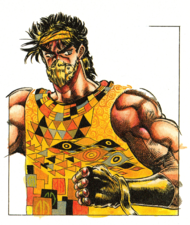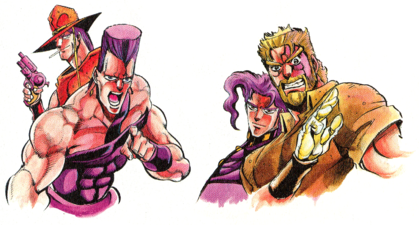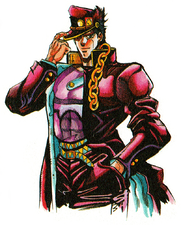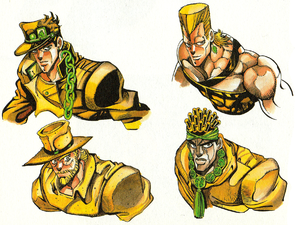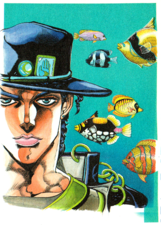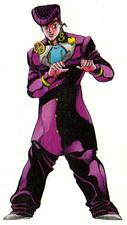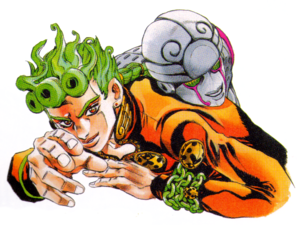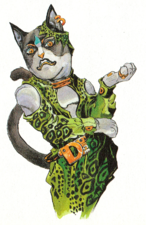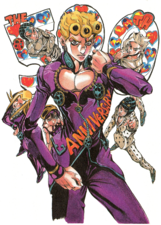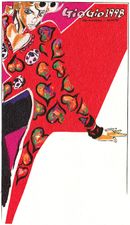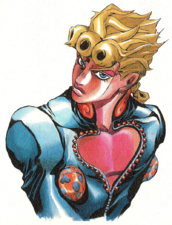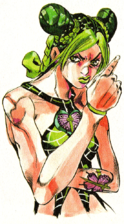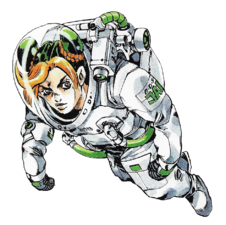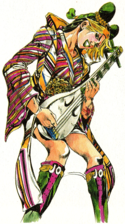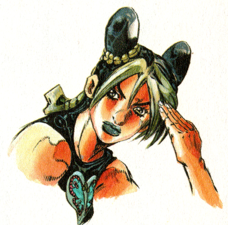HIROHIKO ARAKI WORKS
HIROHIKO ARAKI WORKS 1981-2012 is an exhibition catalog featuring artwork from the Hirohiko Araki JoJo Exhibition 2012. Created as part of the celebration of JoJo's Bizarre Adventure's 25th Anniversary, the book acts as a full-color artbook containing over 500 of Hirohiko Araki's illustrations.
Summary
The book is a catalog filled with artwork from each part, separated into multiple sections. Each section is categorized by the years the art in it was created, ranging from 1981 to 2012. Aside from JoJo's Bizarre Adventure, the catalog features art from Araki's previous works (such as Gorgeous Irene and Baoh the Visitor), spin-offs, tributes and contributions to various other publications. The artbook also includes copies of the original pages of Chapter 263: DIO's World, Part 17.
The margin of each page is partially colored. Depending on which way the book is bent, either the Stand Cries "ORA ORA ORA ORA" or "MUDA MUDA MUDA MUDA" appear.
Commentary from Hirohiko Araki
Regardless, these manuscripts are typically stored in my file book, which is put away in a cabinet. But I'm very happy that for this occasion, they return to the open air and light of day, as if awakening from a years-long sleep, in the form of this original art exhibition for you to enjoy. It also feels like a grandiose feat to me. But, I'm sincerely thankful to the fans, who have read JoJo's Bizarre Adventure for 25 years, for giving me this opportunity.
You may try to find the differences between the originals and the printed versions as you read this book, or recall the feel of the original art once you return home. At any rate, nothing would make me happier than if you enjoyed your time here.印刷でちょっと線のタッチがつぶれちゃってるとか、逆に線がかすれてるとか、紙質が原稿用紙と違うとか、カラー原稿で、オレンジ色に塗ったのに、赤色にしか見えないとか。「原画になるべく近づけて印刷して下さい」と注文とかお願いしても限界はどこかにあって、それがマンガ原稿の宿命であって、ルールです(逆にタッチがつぶれてくれたおかげでシャープで良い感じになったりとかあったりして)。印刷されたときのことを計算に入れて描くのがプロだろ?と思われる方も居られるかと思いますが、そんな余裕が他の漫画家の先生達とかあるのかなあ?少なくとも僕には余裕なんて無くて、原稿は原稿、本は本、と割り切って描くのがルールと思うようにしています。
とはいえ、その「原稿たち」が普段、「ファイルブック」の中に保管されて、戸棚にしまわれているのに、何年もの眠りから目醒めるかのように、このたび、空気と光の下に出されで、皆様の目の前で原画展という形で見ていただけることになったのは、本当に嬉しいことです。何という大それた行為なのか…とも思います。でも、”25年”、「ジョジョの奇妙な冒険」を読んでいただいている、読者の皆様のおかげでこんな光栄な機会を与えていただき心から感謝いたします。本書を見ながら「原画と印刷絵」の違いを見ていただくのも良いし、お家に帰ってから原画の感じを思い出されるのも良いし、とにかく楽しんでいただけたら、それ以上言うことは何もなく、幸せなことです。Gallery
